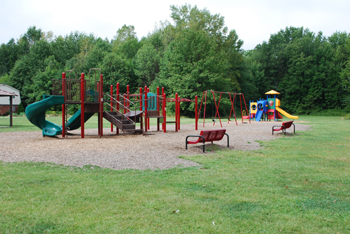 “It’s a beautiful day. Turn off the TV and go outside.” When you were a child, your mom probably uttered those words as she shooed you out the door on a sunny Saturday morning. A quarter century or so later and you’re the mom admonishing her kids to turn off the Wii and go outdoors to play. We know our children need to spend time outdoors, but running off steam and energy and soaking up vitamin D aren’t the only benefits they receive from nature.
“It’s a beautiful day. Turn off the TV and go outside.” When you were a child, your mom probably uttered those words as she shooed you out the door on a sunny Saturday morning. A quarter century or so later and you’re the mom admonishing her kids to turn off the Wii and go outdoors to play. We know our children need to spend time outdoors, but running off steam and energy and soaking up vitamin D aren’t the only benefits they receive from nature.
In an article in the July/August 2012 issue of the AARP Bulletin, Richard Louv, cofounder of the Children & Nature Network and author of Last Child in the Woods (2008), calls nature “vitamin N” and warns that our children are not getting enough of it. Louv believes the growing amount of time children (and adults) are spending engaged in digital pursuits such as gaming, texting and social media is causing what he calls “nature deficit disorder,” a “growing gap between kids and nature.”
Research has found that spending time in nature can decrease stress, enhance memory performance, improve attention span, and boost creativity. Interacting with nature also makes children more conscious of their impact on the world around them.
To increase your child’s “vitamin N,” introduce your child to nature’s wonders:
- Plant a backyard garden.
- Create a wildlife habitat by planting native flowers that will provide food for bees, butterflies and birds.
- During walks point out flowers, trees and bird’s nests.
- Go hiking in the woods.
Exploring and learning about the natural world is an integral part of the curriculum at Horizon Education Centers.






